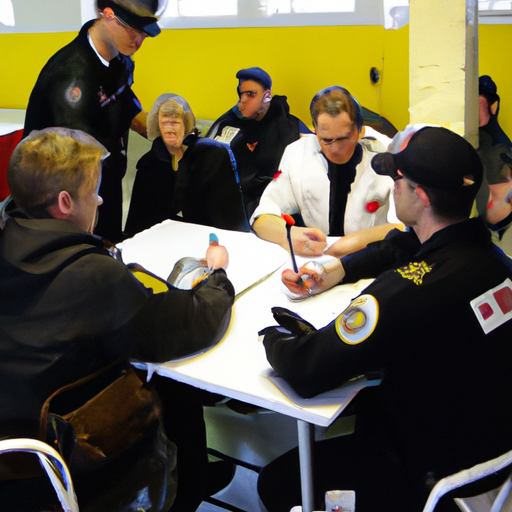Reflections on Nova Scotia’s Response to the Opioid Crisis: Emergency Volunteer Corps
In the face of the escalating opioid crisis that continues to ravage all corners of Canada, Nova Scotia, much like several other provinces, is taking a unique approach to mitigate the crisis through the establishment of a corps of emergency volunteers. This new initiative has sparked conversations about its potential impact, invigorating discussions around strategies against the rampant opioid crisis plaguing the nation.
Understanding the Opioid Crisis
The opioid crisis leaves no room for exclusion, impacting individuals across all strata, from the homeless to the professionals. The illicit use of opioids has led to an unprecedented rise in opioid class action suits, spiralling crime rates, deteriorating public health and economic strain. The article in focus unravels the measures taken by Nova Scotia authorities to help alleviate the crisis’s aftermath.
The Nova Scotia Solution
Against this grim backdrop, Nova Scotia’s focus is on efficient, compassionate, and timely service delivery to those impacted by the crisis. The establishment of a volunteer corps dedicated to combating emergencies, including the opioid crisis, is one such pioneering initiative. This modest battalion of volunteers from diverse backgrounds is trained to offer support during a crisis, from distributing naloxone – a medication designed to rapidly reverse opioid overdose, to providing immediate aid to the afflicted.
Key Takeaways from the Initiative
• Nova Scotia’s volunteer corps is a unique innovation designed to respond mitigatively towards the escalating opioid crisis.
• The notion of community participation in tackling the crisis underscores the collective responsibility towards public safety and health.
• Rigorous training in administering naloxone is a strategic move in combating opioid overdoses.
• The gathering of volunteers from various professional backgrounds diversifies the skillset within the volunteer corps, opening up avenues for a holistic crisis response.
Mitigating the Crisis: Critiques and Controversies
While the idea of a volunteer corps has been applauded by many, the initiative faced a share of skepticism, including concerns over the clear jurisdiction, role, and governing structure for these volunteers as they will collaborate with professionals from emergency services and healthcare. Concerns have also been raised about volunteers’ potential exposure to traumatic and high-stress situations and subsequent mental health impacts.
Complementing Existing Countermeasures
Despite the skepticism, it should not be overlooked that the volunteer corps complements other countermeasures aimed at mitigating the opioid crisis. These include education and awareness campaigns about the dangers of opioid use, expanded accessibility of naloxone kits, increased funding for addictions services and support, and continuous research into opioid use and its impacts.
In Conclusion: A Collective Stride Towards a Solution
While the course of the opioid crisis continues to evolve, Nova Scotia’s response with the plan of creating an emergency volunteer corps represents a collective step towards mitigating its impacts. Whether the initiative becomes a success or offers lessons for future endeavours, the path to overcoming the opioid crisis requires a thoughtfully implemented multifaceted approach, bound by collective action and unwavering resolve.
Remember, the opioid crisis is a shared problem and easing its impacts necessitates shared solutions.-
